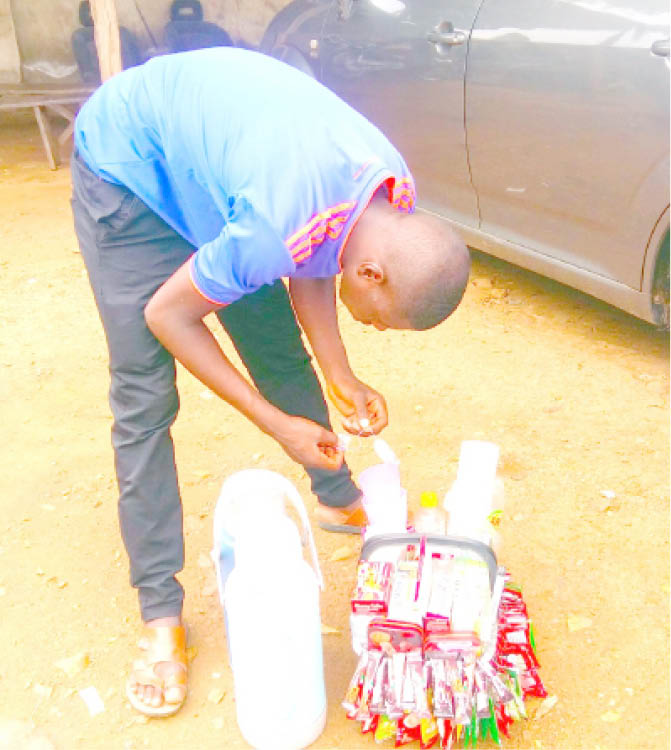COVID-19 lockdown: Tea hawking gives succour to Kebbi returnees
The economic downturn caused by the new COVID-19 pandemic and lockdown imposed by governments in their host communities nationwide have forced many Kebbi indigenes eking a living away from home to return. Many among these returnees who, in some cases, have been away from home for years, however, faced the challenge of which trade to […]

A tea seller preparing a cup for a customer
The economic downturn caused by the new COVID-19 pandemic and lockdown imposed by governments in their host communities nationwide have forced many Kebbi indigenes eking a living away from home to return.
Many among these returnees who, in some cases, have been away from home for years, however, faced the challenge of which trade to engage in to assist them in making ends meet and cater for their families back home.
However, one of the traders whose return has turned into a blessing is Bashari Garba, 22, who told Caliphate Trust that for two years after he left home, he was in Lagos hawking dates and sometimes working as a cobbler.
But as the COVID-19 containment measures sent many packing back to their home states, Bashari joined the young men hawking tea who have now become a common sight in the nooks and corners Birnin Kebbi, the capital city of the state and headquarters of Gwandu Emirate.
He told Caliphate Trust that he enjoys high patronage in tea hawking and was making enough profit from which he takes care of his family and even saves for the rainy day, without the hustling that was part of life’s daily struggle in Lagos.
Caliphate Trust reports that despite the high temperature in that part, which is sometimes experienced even during the rainy season, the young men enjoy brisk business as they moved about selling tea and coffee.
The hawkers could be seen carrying giant hot water flasks and a rubber basket in one hand containing a variety of tea bags and coffee. They also offer an option of serving the tea with sugar or not.
According to Bashari, at the peak of COVID-19 outbreak, he had to relocate back home to Birnin Kebbi because the economy was harsh and survival was increasingly becoming difficult in Lagos.
After over a month of joblessness, after he returned, he said he had to undertake a study on the business he would venture into that would give him quick returns.
He explained that he discovered that the tea business enjoyed high patronage as all categories of people, including women, call for a cup to counter the heat or for breakfast.
“A cup of tea without milk sells at N50; coffee with milk N100 while with ‘enhancer’ for men costs between N150 to N200 depending on the variety.
“In a good day, I make as much as N3000 sale,” he said.
A customer, Habibu Usman, who owns a shop in Birnin Kebbi Central Market said, he takes a cup of tea twice a day, adding that majority of his neighbours in the market also patronize the tea hawkers.
He said many of them have become addicted to taking tea every day in spite of the hot weather experienced in the town.
“Most Kebbi residents patronize these tea hawkers. You can see that they are now many in the town. It is like we are used to the hot tea despite our climate.
“I take tea as part of my breakfast at home and when I come to the market I also take hot tea at least two more times in a day,” he added.
